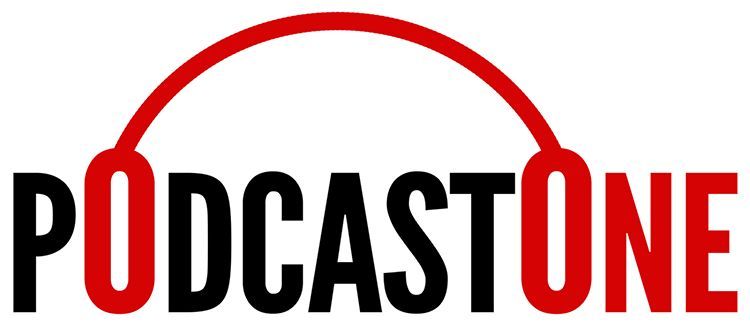
Weekly Roundup: October 12-16, 2020

Michael J. Keegan
White House emerging tech strategy sets sweeping goals to stay competitive. The Trump administration has released a sweeping strategy outlining steps the executive branch can take to promote and protect the country’s competitive advantage on emerging technologies. The White House issued its National Strategy for Critical and Emerging Technologies on Thursday, setting out policy goals for fields that include artificial intelligence, quantum information science, and military and space technologies.
The strategy doesn’t set specific measures like some of President Donald Trump’s executive orders focused on AI and quantum science, but senior administration officials told reporters the strategy signals a new level of coordination among agencies.Priority actions in the strategy include increasing the priority of federal R&D in annual appropriations, accelerating the adoption of emerging technology within agencies and recruiting a workforce with in-demand science and technology skills.
Spectrum on the battlefield. Managing electromagnetic spectrum will become increasingly important as the Army pushes for large-scale operations across domains. "We've had to get back to the basics of looking at the electromagnetic spectrum in electronic warfare in general," Brig. Gen. Robert Collins, the program executive officer for Command, Control and Communications-Tactical told reporters Oct. 14 during a briefing on the Army's six-week Project Convergence experiment at Yuma Proving Ground that ended in September.
Solving the Army's data talent problem. The Army needs to develop specific skill sets and retool or retrain existing workforce, said Mark Gorak, the director of people analytics for the Assistant Secretary of the Army Manpower and Reserve Affairs.
Automated ATOs and cybersecurity. In the remote work environment spawned by the COVID-19 pandemic, more flexible, quicker methods of getting systems the authority to securely operate is more critical than ever, said a top IT advisor at the Department of Health and Human Services.
"Machine learning is critical in terms of fighting fire with fire. We can't fight AI [artificial intelligence] or machine learning with spreadsheets or Word documents. You're going to lose that battle" with hackers, said Oki Mek, senior advisor to the agency's CIO and its ReImagine project. HHS is one of the agencies at the center of the federal government's response to the COVID pandemic.
11 characteristics that identify leadership "shapers" "Shapers" are energized by change and see their role as spotting and navigating possibilities, writes Jonas Altman, who lists 11 qualities of such people. "The intention is to become unflappable and adapt to change with grace," he writes. Leadership Now
How to become a leader when you've never managed. Midlevel executives who haven't managed people have to quickly learn how to handle difficult situations and understand what style of leadership suits them, writes Lara Hogan. "Figure out -- and document -- all the things you typically need when you have to make a tough call," she writes. Lara Hogan
5 steps to solving thorny, unpredictable problems. "Wicked" problems such as the pandemic affect larger society, are unpredictable and require leaders who can clearly see the root problem, are willing to think through alternative solutions and are quick to pivot, write INSEAD professors Natalia Karelaia and Ludo Van der Heyden, citing their research. "The ability to hold oneself responsible in front of people, particularly in defeat, is the hallmark of great leaders," they write. INSEAD Knowledge
Rethink strategy if you say "no" to these questions. There are 10 questions that every leader should be asking about strategy, including whether the vision is clear, if everyone feels invested in the outcome and whether managers and front-line workers are doing what's necessary, writes Jim Haudan. "Without the right resources and training, they won't be able to deliver, but the blame will be on you," he writes. Root Inc.
Why companies don't think offices are dead. Flexible work, with a mix of office spaces and working at home, is likely the future at large companies that recognize an all-or-nothing approach isn't needed. Surveys suggest some workers are unproductive at home, including multitasking during scheduled meetings. National Public Radio.
John Kamensky
Reforming Government. In a column for Government Executive, Howard Risher writes: “Former Comptroller General David Walker makes a strong case for transforming federal personnel systems to stress values of accountability, integrity and reliability.” In his new book, America in 2040: Still A Superpower?, Walker describes steps he thinks need to be taken ,about which Risher interviewed him.
Contract Spending Is Up. Government Executive reports: “Civilian agencies’ contract spending hit a record high of $228 billion in fiscal 2020, an increase of 17% ($33.5 billion) from 2019. The surge in spending is mainly due to the novel coronavirus pandemic.
Automating Acquisition. Federal News Network’s Jason Miller reports: “Just about a year ago, Office of Federal Procurement Policy Administrator Dr. Michael Wooten unveiled what likely will be his signature priority—removing friction from the acquisition process. . .[by leaning] heavily on robotics process automation (RPA) and other initiatives to lessen the burden on contracting officers.
VBA Survey Feedback. Federal News Network reports: “The Veterans Benefits Administration heard from student veterans earlier this spring, who had expressed concerns about their basic housing allowances as colleges and universities pivoted to virtual instruction. . . . VA took those concerns to Congress, which drafted legislation giving the department the authority to continue dispersing housing benefits to veterans during the pandemic — even if their classes are technically virtual.”
*****
Next Week on The Business of Government Hour: A Conversation with Troy Edgar, Chief Financial Officer, U.S. Department of Homeland Security. What is the U.S. Department of Homeland Security's financial management strategy? How is DHS working to modernize its financial system? How has the COVID-19 pandemic impacted the finances and budget of DHS? Join host Michael Keegan as he explores these questions and more with Troy Edgar, Chief Financial Officer, U.S. Department of Homeland Security. That's next week on The Business of Government Hour.
Broadcast Schedule: The show airs Monday at 11 a.m., and Friday at 1 p.m. on Federal News Network 1500AM WFED
Anytime, Anywhere on...

https://www.podcastone.com/the-business-of-government-hour

https://itunes.apple.com/us/podcast/the-business-of-government-radio-hou



